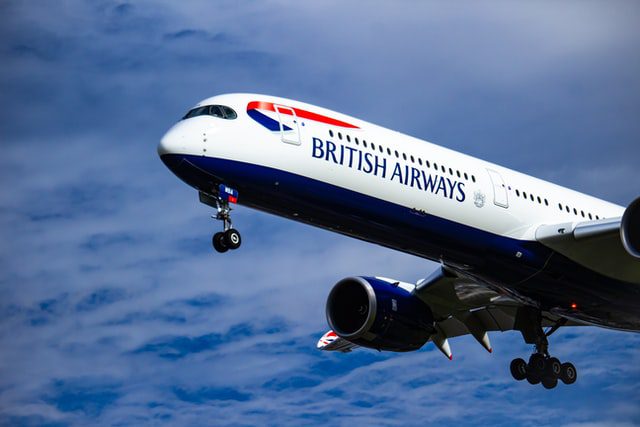We’re all trying to find ways to love more sustainably. We’re cycling or walking as much as we can, and thinking twice about using the car if we don’t need to. We’re buying more sustainably-sourced products, and throwing a lot less waste into landfills. We’re considering the environmental impact of the food on our plates, eating more plants and relying less on meat and dairy products. And though the pandemic has kept most of us grounded for almost two years anyway, the general consensus is that those who want to live more sustainably should avoid flying.
Conventional wisdom dictates that flying is the most ecologically dangerous form of travel. Aviation alone accounts for 2.5% of the world’s carbon emissions, and the aviation sector is responsible for around 5% of the planet’s global warming. This may not seem too momentous a figure until you consider just how tiny a proportion of the world’s population flies frequently (around 3%). What’s more, emissions from planes increased by almost a third in just 5 years from 2013 to 2015. This figure is also estimated to double by 2040. For numerous reasons, however, sustainable air travel has been an extremely tough nut to crack.
Until now.
British Airways has revealed that it will be the first airline ever to fly using sustainable fuel sourced from recycled cooking oil. Starting in 2022, sustainably-sourced jet fuel will be produced at scale to decarbonise the airline’s flights.
How is British Airways going to achieve the sustainable aviation fuel pledge?
On Thursday 2nd December 2021, British Airways announced that it had reached an agreement with Lincolnshire-based Phillips 66 Humber refinery. Under the agreement, the refinery will produce enough sustainable aviation fuel (SAF) to power 700 net-zero-carbon transatlantic flights on a Boeing 787.
This will be a key step in the airline’s pledge to achieve 100% carbon neutral operations by 2050. Prior to this breakthrough, much of British Airways’ sustainability work was carried out through carbon offsetting. This is where the carbon generated from flights is offset by other investments in sustainable infrastructure at home and overseas.
British Airways has committed to fueling 10% of its flights with SAFs by 2030, and is committed to the production of a new waste-to-fuel plant in the North East.
Is this the future of aviation?
While certainly a game-changer, British Airways’ use of SAFs should be viewed as a medium-term measure rather than a game-changer. A transient, albeit important, stop on the flight path to true sustainability and reduction of environmental impact. Even British Airways’ chief executive, Sean Doyle, referred to the use of SAFs as “another important step on our journey to net-zero carbon emissions”.
SAFs still produce carbon emissions while in flight. However, their lifecycle CO2 emissions are over 80% lower than conventional jet fuel. However, critics argue that SAFs merely shift the carbon to another link in the supply chain as their production is energy-intensive and causes carbon emissions of its own.
Electric passenger jets are also in active development, and could prove another tool in the struggle for a greener aviation sector.
Will your plane tickets become more expensive?
The advent of SAFs will no doubt be of interest to ecologically minded consumers who want to be able to travel internationally for work and pleasure without the guilt associated with air travel’s hefty carbon footprint.
But what does this mean for the cost of flights?
Unfortunately, it means that flying green will come at a premium. The International Air Transport Association (IATA) has estimated the cost of ‘greening’ the aviation sector at over one and a half trillion US dollars. Inevitably, this will need to be borne by the consumer, with incremental price rises facilitating investment in greener aviation technologies. Part of this includes paying for more sustainable fuels.
It’s estimated that fuel spending makes up 20-30% of an airline’s operational costs. Given that SAFs are significantly more expensive than oil-based fuels, this is likely to increase air fares incrementally over time.
According to Filip Cornelis, aviation director at the European Commission’s transport department, we can expect to see price increases of 1% by 2030 and around 8% by 2050. However, experts maintain that it’s too early to definitively tell when and how ticket prices will be impacted as ticket pricing is so complicated.
Why is the aviation sector so hard to decarbonise?
In the race to become carbon neutral by 2050, the entire transportation sector needs a serious overhaul. But aviation has proven a difficult sector to decarbonise.
Flying through the air requires an enormous amount of energy. As such, the industry has needed to rely on kerosine fuels with high energy-density. While SAFs are a potential mid-term solution, they are difficult to produce at volume using waste oil, and are simply not sustainable in the long term.
Although biofuels could potentially be made from vegetable oils such as palm, soy and corn, producing these at scale could further drive deforestation. Nonetheless, there are some exciting new technological advances on the horizon that could provide greater hope for the long term.
Theoretically, a new generation of advanced biofuels could be cultivated from agricultural and forestry waste. Meanwhile, electrofuels that combine clean electricity with hydrogen could be renewable at a near-infinite scale.

| [donate]
| Help keep news FREE for our readersSupporting your local community newspaper/online news outlet is crucial now more than ever. If you believe in independent journalism,then consider making a valuable contribution by making a one-time or monthly donation. We operate in rural areas where providing unbiased news can be challenging. |



















